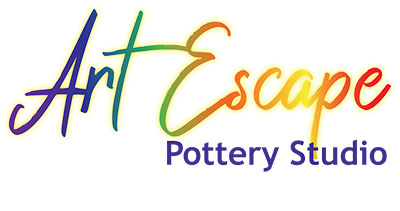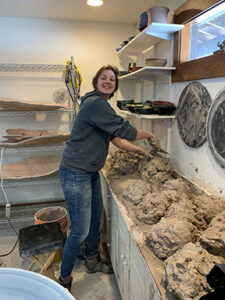Adaptive Creativity: Navigating Unexpected Outcomes in Pottery Making
In the world of pottery, as in life, adaptability is a valuable skill that can lead to unexpected discoveries and creative breakthroughs. Pottery lessons offer a unique opportunity for individuals to hone their adaptive creativity as they navigate the unpredictable nature of the pottery-making process. From unexpected glaze effects to spontaneous changes in form, pottery lessons teach students how to embrace the unexpected and transform challenges into opportunities for innovation and growth. Here’s how adaptive creativity in pottery lessons can translate into creative adaptation in life:
Embracing Imperfection: Pottery lessons teach students to embrace imperfection and view unexpected outcomes as opportunities for creative exploration. Whether a piece comes out slightly warped or a glaze produces unexpected colors, students learn to see these imperfections as unique features that add character and depth to their work.
Experimenting with Techniques: Pottery lessons encourage experimentation with different techniques and approaches to pottery making. When a particular technique doesn’t yield the desired results, students learn to adapt and try new approaches, leading to unexpected discoveries and innovative solutions.
Responding to Challenges: Pottery making is full of challenges, from clay that refuses to cooperate to kiln mishaps that result in unexpected outcomes. In pottery lessons, students learn to respond to these challenges with creativity and resourcefulness, finding alternative solutions and adapting their designs to suit the circumstances.
Cultivating Resilience: Pottery lessons cultivate resilience by teaching students to bounce back from setbacks and persevere in the face of adversity. When a piece cracks or collapses in the kiln, students learn to view it as a learning experience rather than a failure, using it as an opportunity to refine their skills and try again.
Finding Inspiration in Mistakes: Mistakes and accidents in pottery making often lead to unexpected moments of inspiration. In pottery lessons, students learn to embrace these serendipitous moments, finding beauty and meaning in the unexpected and using them as springboards for creative exploration.
Fostering Adaptability: Pottery lessons foster adaptability by exposing students to a wide range of materials, techniques, and challenges. As students learn to adapt their approach to different situations, they develop a flexible mindset that can be applied to other areas of their lives, leading to greater resilience and creativity in the face of change.
Encouraging Risk-Taking: Pottery lessons encourage students to take risks and step outside their comfort zones in pursuit of creative expression. Whether experimenting with new forms, textures, or glazes, students learn that taking risks often leads to the most interesting and innovative outcomes.
Building Confidence: As students overcome challenges and adapt to unexpected outcomes in pottery lessons, they build confidence in their ability to tackle new and unfamiliar situations. This newfound confidence spills over into other areas of their lives, empowering them to approach challenges with creativity and resilience.
Cultivating a Growth Mindset: Pottery lessons cultivate a growth mindset by emphasizing the importance of learning from mistakes and embracing challenges as opportunities for growth. As students develop a growth mindset, they become more open to new experiences and more willing to adapt and innovate in pursuit of their goals.
In conclusion, adaptive creativity in pottery lessons teaches students valuable skills that extend far beyond the pottery studio. By learning to embrace imperfection, experiment with techniques, respond to challenges, and find inspiration in mistakes, students develop the resilience, adaptability, and creativity needed to thrive in an ever-changing world. As they apply these lessons to other areas of their lives, they discover new possibilities, overcome obstacles, and unleash their full creative potential

